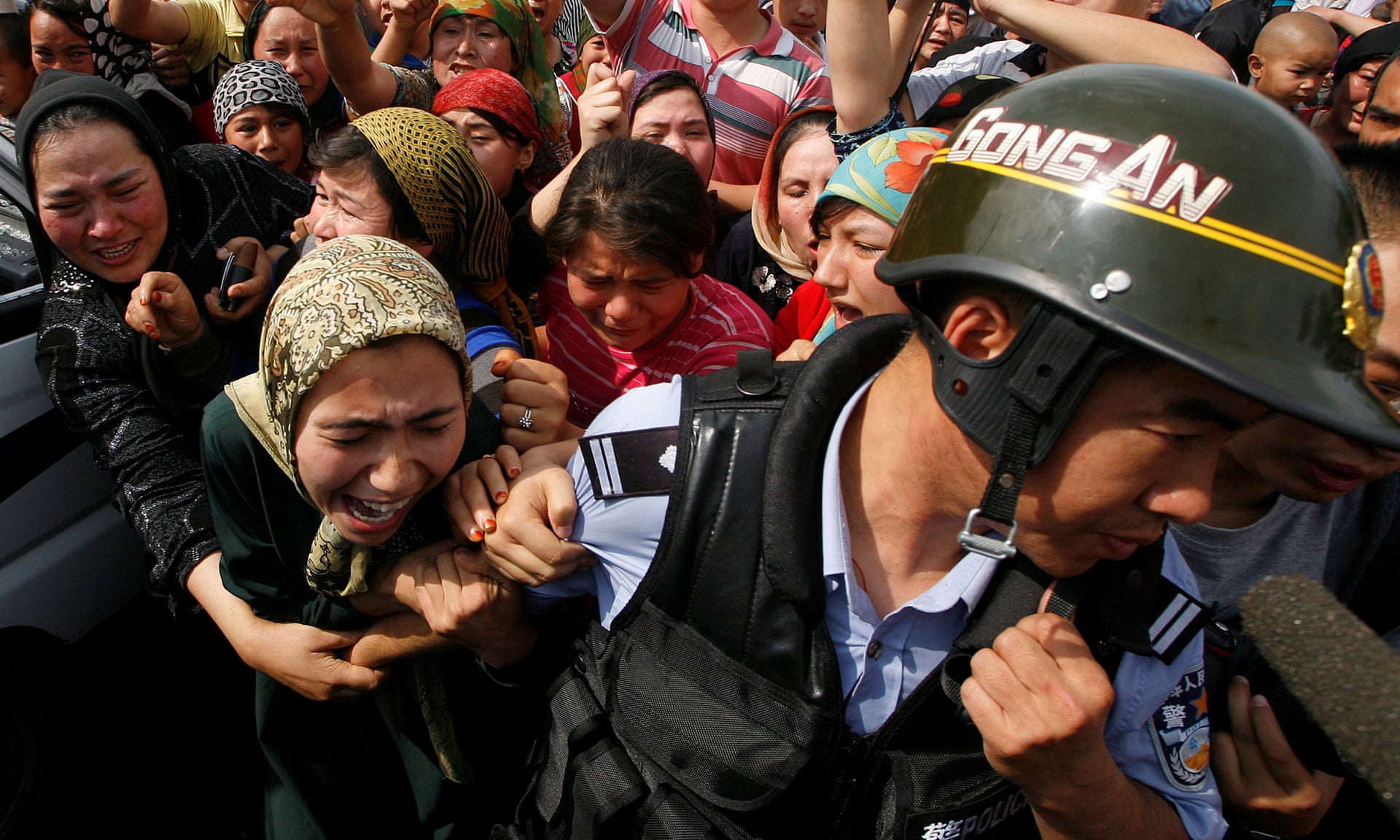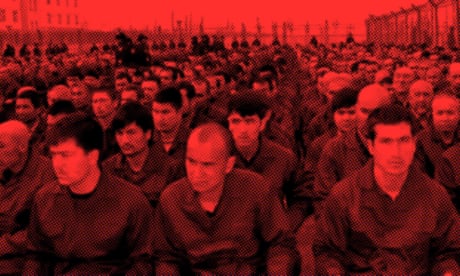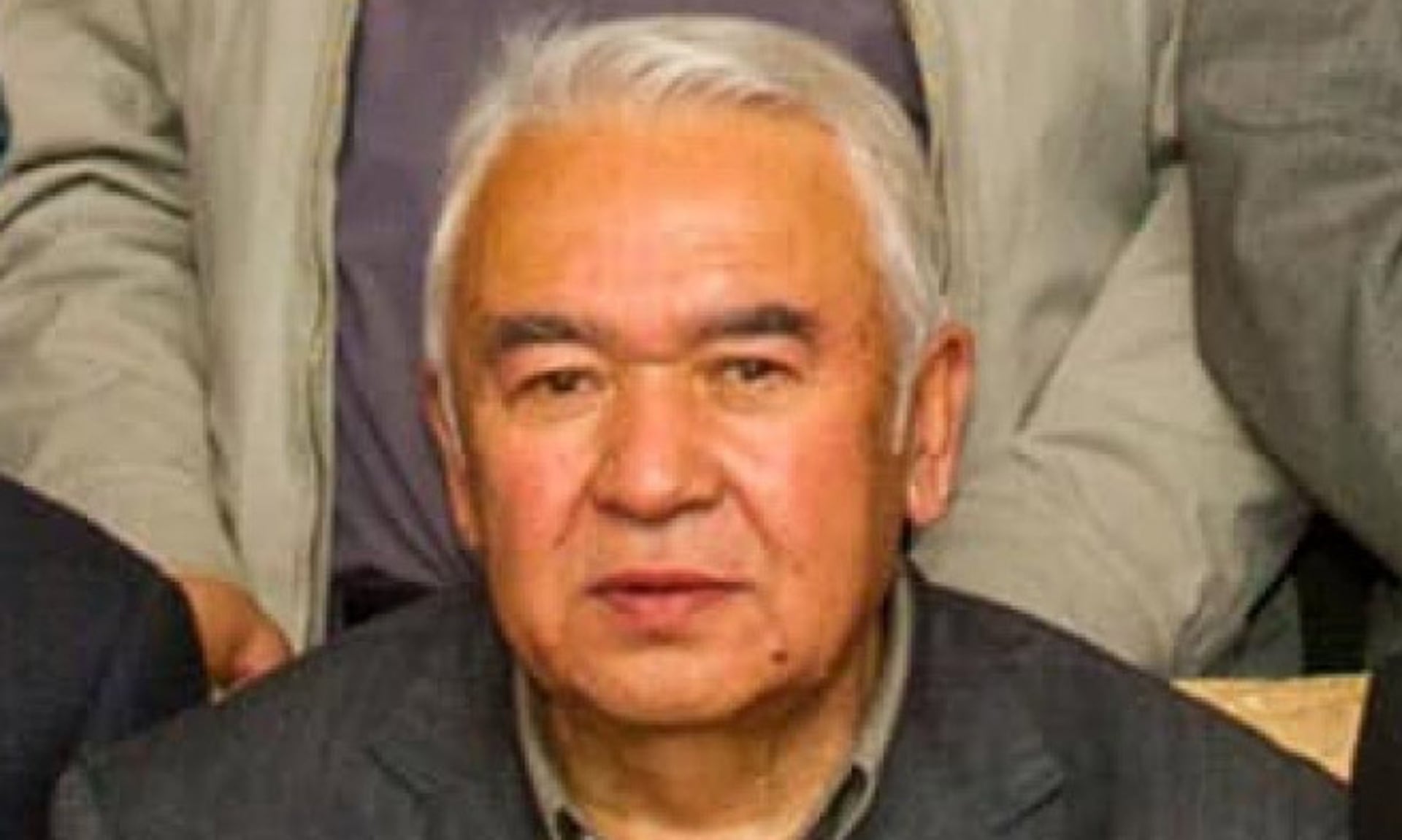China takes Muslim children from their families
By Christy Choi in Hong Kong
A crowd of locals confronting security forces in Urumqi in 2009.
China is separating Muslim children from their families, religion and language, and is engaged in a rapid, large-scale campaign to build "boarding schools" for them.
The attempts to “remove children from their roots” exists in parallel to Beijing’s ongoing detention of an estimated 1 million Uighur adults from the East Turkestan colony in concentration camps and sweeping crackdown on the rights of the minority group, the BBC reported.
“I don’t know who is looking after them,” one mother told the BBC, pointing to a picture of her three young daughters.
“There is no contact at all.”
The BBC says its investigation is based on publicly available documents, and backed up by dozens of interviews with family members living overseas.
The BBC says its investigation is based on publicly available documents, and backed up by dozens of interviews with family members living overseas.
In 60 separate interviews, parents and other relatives gave details of the disappearance of more than 100 children in East Turkestan, all of them Uighurs – members of the region’s largest and mostly Muslim ethnic group.
“I heard that they’ve been taken to an orphanage,” another woman said, holding a photograph of her four children.
“I heard that they’ve been taken to an orphanage,” another woman said, holding a photograph of her four children.
In one township alone, more than 400 children have lost one or more parents to either the camps or prison, it reports.
A Chinese state media outlet called overseas reports on China’s mass detainment of Uighur Muslims in concentration camps “fake news” and published detailed denials of eight “rumours”, on the 10th anniversary of the Urumqi riots, in which at least 140 people were killed and 828 injured.
A Chinese state media outlet called overseas reports on China’s mass detainment of Uighur Muslims in concentration camps “fake news” and published detailed denials of eight “rumours”, on the 10th anniversary of the Urumqi riots, in which at least 140 people were killed and 828 injured.
Many Uighurs say the riots precipitated the increasing oppression of Muslims in the region.
The denials contradict well-documented evidence from media outlets and researchers.
China initially denied the existence of the concentration camps in East Turkestan, which is home to about 12 million Muslims.
But last year, it began rebranding them as “free vocational training”, claiming those detained within them are "taught language, culture and vocational skills".
The Chinese narrativ denies Uighurs are being targeted and mistreated, that the state is looking to wipe out their history and culture, and that they were sent to “vocational training centres” for being Muslim.
It also denies there were a million people being held at these centres, says the camps were there for “counter-terrorism and deradicalisation efforts”, and the centres existed to “nip terrorist activities in the bud”.

'If you enter a camp, you never come out': inside China's war on Islam
An earlier BBC report showed a teacher describing inmates as “affected by religious extremism”, and saying that the purpose of the camps was “to get rid of their extremist thoughts”.
The prominent Uighur author Nurmuhammad Tohti, 70, died after being held in one of the re-education camps.
His granddaughter said he had been denied treatment for diabetes and heart disease, and was released only once his medical condition meant he had become incapacitated.
China has in recent weeks invited media outlets to view these camps, but has tightly controlled their access to the facilities and detainees.
The Chinese narrativ denies Uighurs are being targeted and mistreated, that the state is looking to wipe out their history and culture, and that they were sent to “vocational training centres” for being Muslim.
It also denies there were a million people being held at these centres, says the camps were there for “counter-terrorism and deradicalisation efforts”, and the centres existed to “nip terrorist activities in the bud”.

'If you enter a camp, you never come out': inside China's war on Islam
An earlier BBC report showed a teacher describing inmates as “affected by religious extremism”, and saying that the purpose of the camps was “to get rid of their extremist thoughts”.
The prominent Uighur author Nurmuhammad Tohti, 70, died after being held in one of the re-education camps.
His granddaughter said he had been denied treatment for diabetes and heart disease, and was released only once his medical condition meant he had become incapacitated.
China has in recent weeks invited media outlets to view these camps, but has tightly controlled their access to the facilities and detainees.
